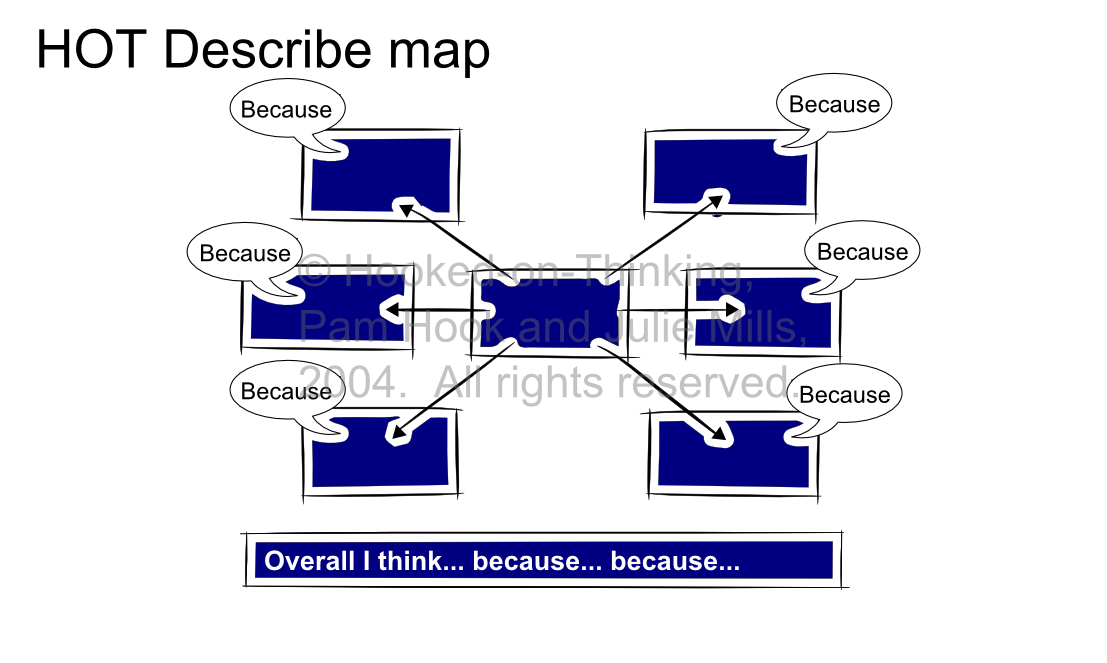I attended the Thinking Conference early this year and was inspired to implement many great ideas with my class.
One of these ideas was using SOLO taxonomy to help the students order their thinking.
In Room 8 we use SOLO maps to help the students order information they find or their own ideas to help shape their writing or next steps.
For example: When we started looking at writing animal information reports the students needed to research their information. Instead of just listing all the information they found on the animal they used a Describe map to help them record their ideas and thinking. They were able to write down characteristic of their chosen animal and explain why this characteristic was important to that animal and it's environment.
This has meant that when they went to write their information reports they had all the information they needed and each paragraph was framed for them.
Friday, 7 June 2013
Saturday, 1 June 2013
Maths examples of SOLO Taxonomy in Room 9
Here are some more examples of SOLO Taxonomy in action, but this time in mathematics.
The two examples shown below are strategies which the students have assessed themselves against this criteria:
For any new mathematics strategy the students learn they assess themselves against it. The examples below are from the students e-portfolios
The two examples shown below are strategies which the students have assessed themselves against this criteria:
For any new mathematics strategy the students learn they assess themselves against it. The examples below are from the students e-portfolios
- Maths example showing share quantities with given ratios
- Maths example showing how to find common factors and multiples
Sunday, 14 April 2013
Solo Taxonomy in Room 9
At the thinking conference I attended many workshops on Solo Taxonomy. Here are some examples below of how this has been shown through students learning in Room 9.
Saturday, 23 March 2013
THINKING CONFERENCE 2013 WELLINGTON January 25th
These strands will provide a context for the overall focus on thinking. This includes reflective, creative, innovative, critical, analytical and organisational thinking, as well as learning about thinking, developing thinking skills, key paradigm shifts in thinking, understanding how we learn and how to promote lifelong learning, and the implications for education of recent research on the brain.
OAKLANDS TEACHING STAFF WHO ATTENDED
Margaret Trotter
Caroline Gatherer
Jan Hall
Trish Patten
Steve Ladbrook
Lynnie O'Connor
Bryan Brown
Stacey Harris
This is an opportunity to illustrate during the 2013 year how our learning has impacted on Oaklands School, our teaching practice, our own learning and our next steps from what we learnt. This blog will be shared with the BOT in our November meeting to show the impact of this professional development funded by the BOT.
The theme for ICOT 2013 is Expanding Global Thinking under which there are three strands: Future Survival, Personal Future, and Future Society.
The conference theme: Expanding Global Thinking
The conference will promote cross-discipline involvement in the development of our capacity to think and learn. Speakers will address issues within the overarching theme of “Expanding Global Thinking”:
- Future Survival—environment, science & technology, health, energy
- Personal Futures—work & leisure, learning, arts & culture, aging populations
- Future Society—indigenous development, societal institutions, social equity, evolving economies
These strands will provide a context for the overall focus on thinking. This includes reflective, creative, innovative, critical, analytical and organisational thinking, as well as learning about thinking, developing thinking skills, key paradigm shifts in thinking, understanding how we learn and how to promote lifelong learning, and the implications for education of recent research on the brain.
Delegates will be invited to use a personal lens to engage with these themes, and to join us to discuss, debate, and explore the issues.
Speakers were link
http://icot2013.core-ed.org/speakers/
OAKLANDS TEACHING STAFF WHO ATTENDED
Margaret Trotter
Caroline Gatherer
Jan Hall
Trish Patten
Steve Ladbrook
Lynnie O'Connor
Bryan Brown
Stacey Harris
This is an opportunity to illustrate during the 2013 year how our learning has impacted on Oaklands School, our teaching practice, our own learning and our next steps from what we learnt. This blog will be shared with the BOT in our November meeting to show the impact of this professional development funded by the BOT.
Subscribe to:
Posts (Atom)

